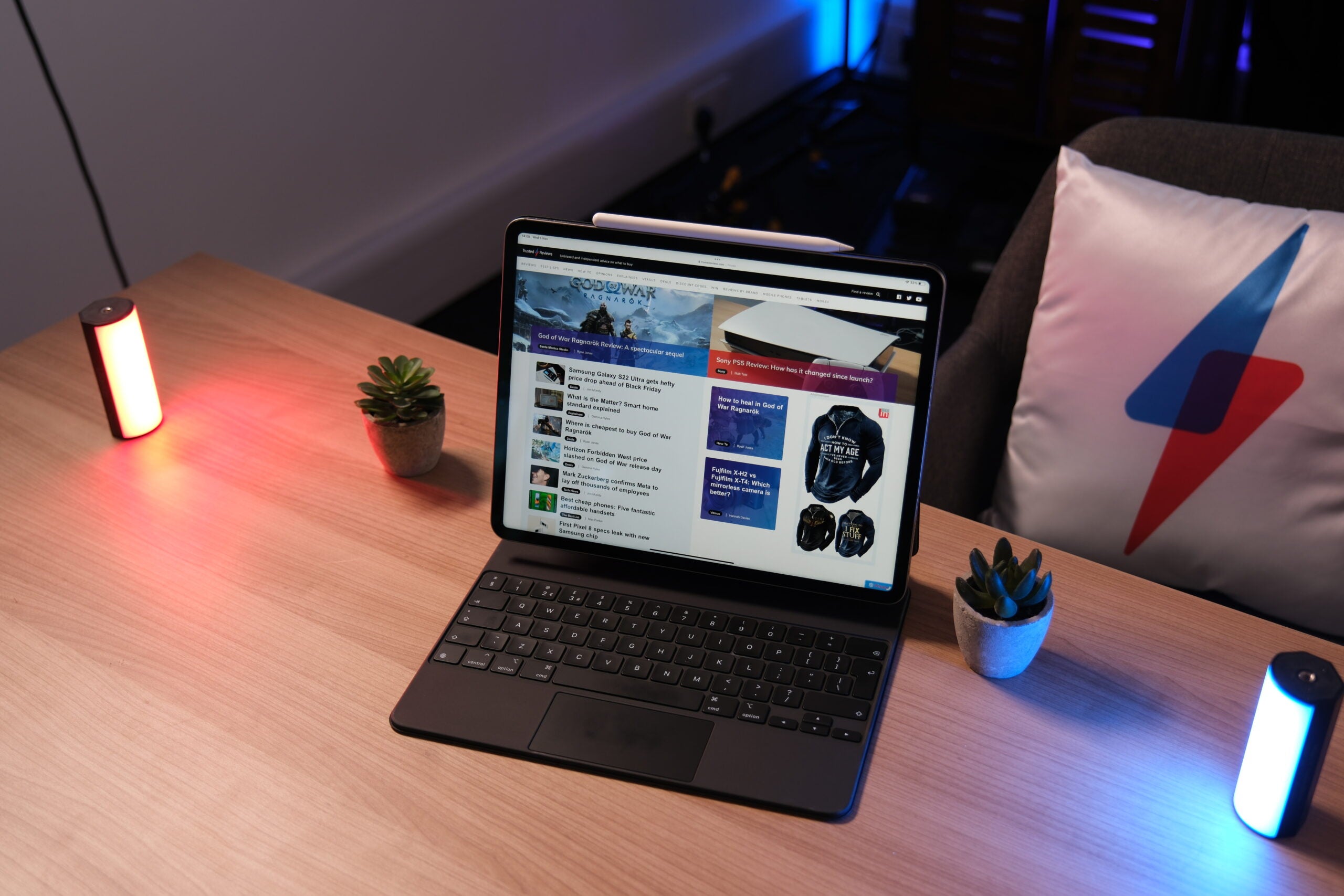Apple has made a huge error with the MacBook Air M3

OPINION: This week, Apple surprised us all with the announcement of a brand new MacBook Air laptop.
Apple has upgraded the processor to the new M3 chip, which not only boosts performance but also unlocks support for Wi-Fi 6E and the ability to connect up to two external displays when the laptop lid is closed.
Beyond that, Apple hasn’t tweaked much else, and why should it? The MacBook Air is arguably the best ultra-portable laptop you can buy today. It has a competitive performance, an ultra-portable stylish design and an affordable price point.
However, there is one area where Apple is starting to fall behind its competitors, and that’s the screen. That may be hard to believe, as Apple has – for a long time – produced some of the very best screens you can find on a laptop.
The new MacBook Air has the same screen as before, which means you get the choice of 13-inch or 15-inch size, a 2560×1664 native resolution and a 500-nit peak brightness that is far brighter than the vast majority of IPS laptop screens you can find on the market. If you’re purchasing any Windows laptop LED-backlit display, it’s probably not as good as the MacBook Air.

However, LED displays are starting to feel dated. Many laptop manufacturers have now moved onto OLED or Mini LED displays, which offer superior contrast, darker blacks and a punchier overall picture. This screen technology has been around for numerous years now, but it was previously reserved for the most expensive laptops, such as the MacBook Pro. That’s no longer the case, as such screens are now becoming the norm.
The Asus Zenbook 14 OLED (£1399/$1399), Acer Swift Go 14 (£999/$1049) and Samsung Galaxy Book 4 360 (£1199/$1099) all share a similar price point to the latest MacBook Air, yet offer an OLED screen. And while the likes of the new Dell XPS 14 don’t come with an OLED panel at default, you still get the option to upgrade to one.
No OLED here
Apple unfortunately doesn’t offer an OLED screen on any of its laptops, and if you want a Mini LED display, you’ll need to pay at least £1699/$1599 for the 14-inch MacBook Pro.
I can only assume that Apple resisted the urge to upgrade the MacBook Air screen to incentivise people to buy the MacBook Pro instead, especially now it’s available with the standard M3 chip. But that leaves the 15-inch MacBook Air in an odd spot.

There’s no option for the big-screen laptop to be upgraded to Mini LED, so if you don’t want to compromise on size, you’ll need to purchase the 16-inch MacBook Pro instead, which costs an almighty £2599/$2499. For comparison, the Acer Swift 16 costs just £1299/$1299 despite having a 16-inch OLED panel.
This doesn’t make the new MacBook Air a bad laptop. For those who aren’t planning on watching video on their laptop, you really only just need a portable laptop with speedy productivity performance. But I still feel you can’t discount it as a major flaw.
When the M1-powered MacBook Air first launched back in 2020, it was the absolute best ultra-portable laptop in almost every department. Without testing it, I doubt I’ll be able to say the same about the latest iteration of the MacBook Air, and that’s all because of the lack of OLED.








